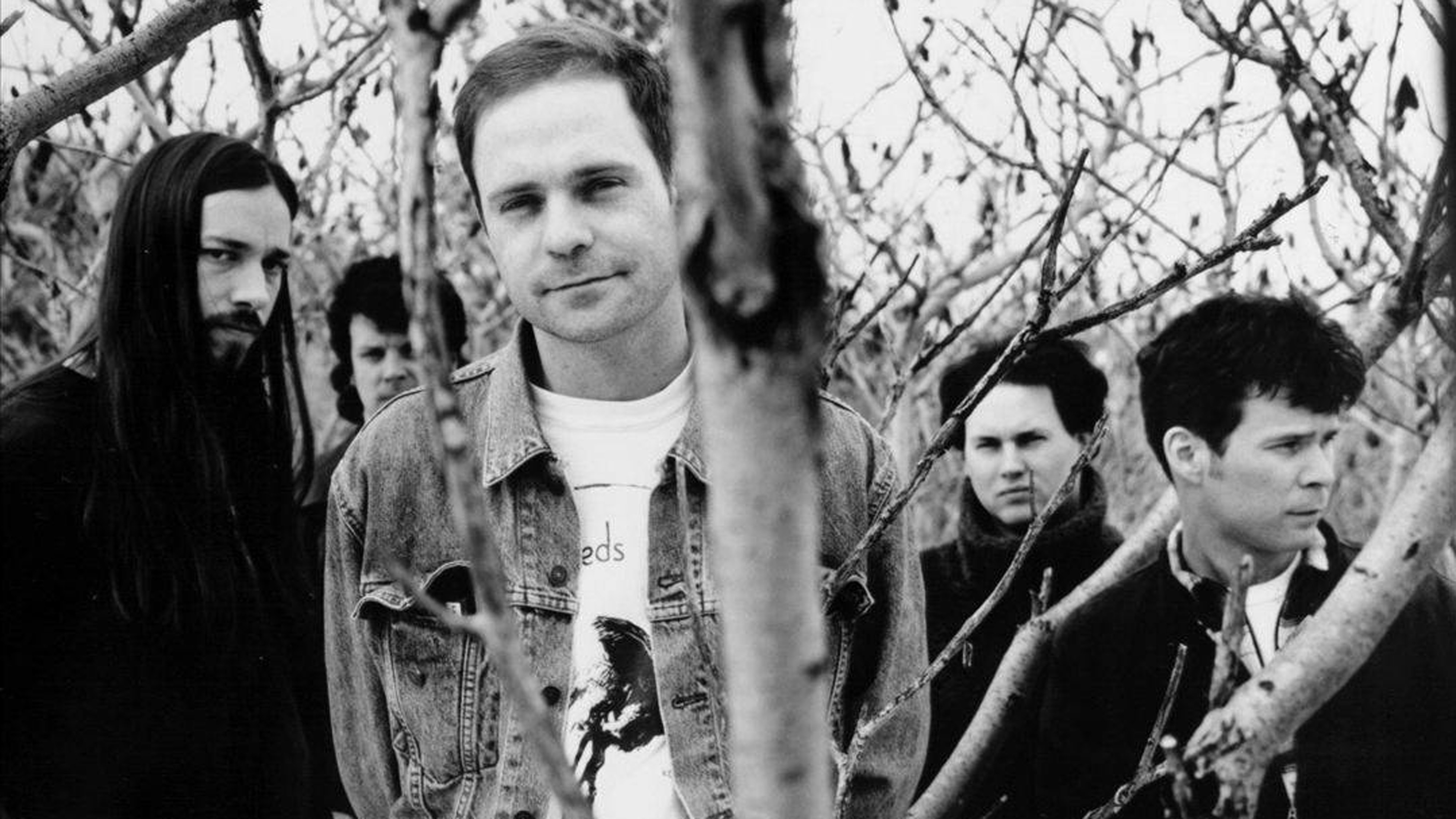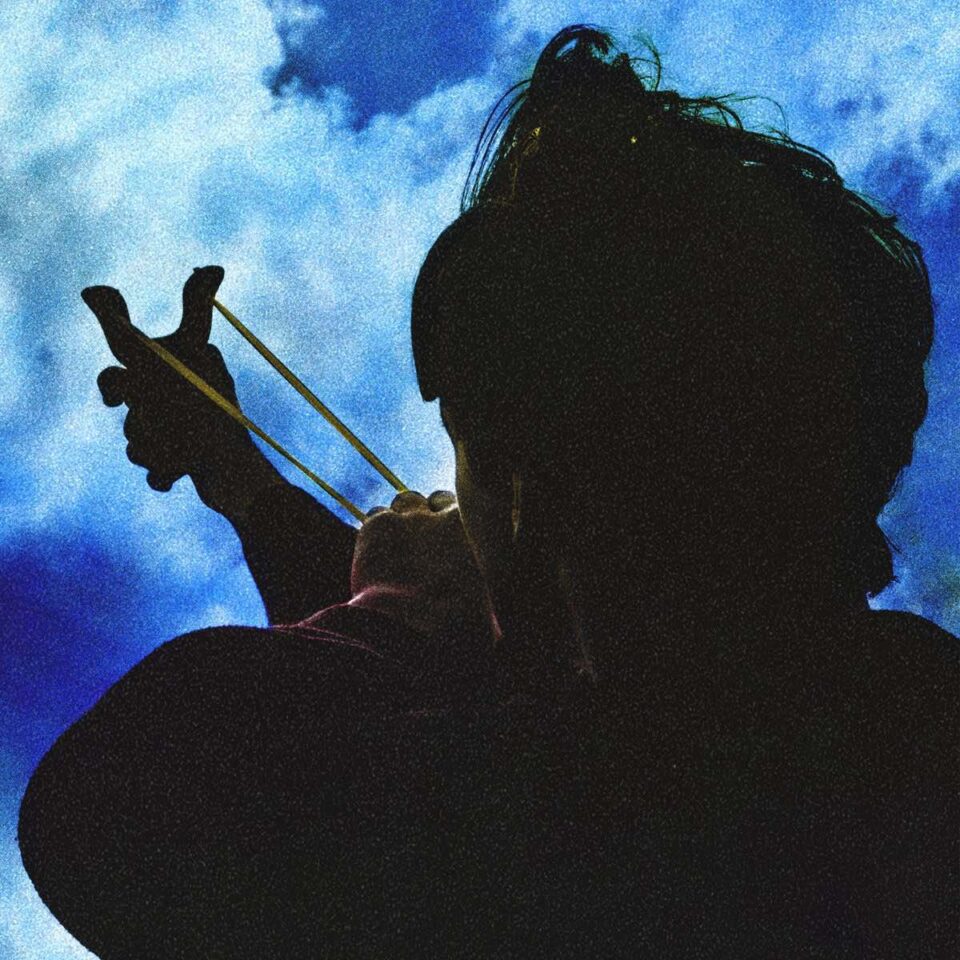A warning: this essay is written in Canadian. It is riddled with U’s and “er’s” turned to “re’s”. It places definitive periods outside of quotation marks. It makes reference to small towns and obscure historical figures. It makes reference to songs you don’t know. It talks about hockey. It talks about our band.
There was a time when, for a certain generation of Canadians, The Tragically Hip was everything. The band from Kingston—a quintet of lifelong friends—was the soundtrack of our youths. The Hip scored our May Two-Fours, curated July 1 celebrations, and filled out the aural landscape at hockey games, weddings, and out at the speedway. They were played in every bar from Cornerbrook to Tofino. More than just a band, The Hip belong to Canada like nothing has before and nothing ever will again. Their music, their lore, their humility and their grace, too—so wonderfully Canadian in its reserve—promised they would be with us forever.
Nothing corrupts promises like cancer.
Tuesday morning we awoke to the news that the band’s frontman, Gord Downie, has terminal brain cancer. The weight of that news can’t possibly be understood without an appreciation for what The Hip have come to mean to a country whose musical heroes tend to seek out a greater fame in the United States. From Neil Young and Joni Mitchell to Tegan and Sara and Drake, Canadian musicians have moved their focus south for a kind of stardom the Great White North can’t provide. But, whether by design or circumstance, The Hip have remained distinctively Canadian. Only Downie moved from Kingston to Toronto, and their music remained just as honestly rural as it was raucously urbane. So, as a country processes the heartbreak of a disease that doesn’t care about fame or nationality, we struggle to come to terms with the fact that one day sooner than we imagined, Gord Downie will leave us all, lost in the barrens.
Downie, Gord Sinclair, Paul Langlois, Rob Baker, and Johnny Fay formed The Tragically Hip in Kingston, Ontario, in the mid-’80s and we haven’t been the same since. Canada’s bar band became the essence of the country, small-town friends who sang songs that seemed to penetrate to the very core of what it was to be Canadian; they were humble, quietly ambitious, and fiercely proud of the land from which they came. They were patriotic without being jingoistic. They wore the maple leaf in their lyrics and not on their sleeves. And the narrator, the centre, the medium through which our mythology was revisited, was the band’s spirited frontman Downie.
Gord Downie is the bastard child of Mick Jagger and Al Purdy. He is equal parts troubadour and poet. His command of a stage is so perfected, so honestly esoteric as to embody the very definition of unique. The Hip’s music, always credited to the band and no individual, is equal parts Gordon Lightfoot and The Stones—blues-riddled rides of devastating hooks, folk tales wrapped in rock—and we use it as a filter, situate ourselves in it, and long ago fell deeply in love with it. The Hip tell stories that aren’t just born of Canada, but that weave their way through the very fabric of a people. They sing about “late breaking stories on the CBC”, Bill Barilko’s disappearance—a fact stolen from a hockey card, the surprise of a lover who doesn’t “give a fuck” about our national sport; about Hugh MacLennan, David Milgaard, and Jacques Cartier; about the 1993 Christie riots, about Bobcaygeon, about that night in Toronto, about wheat kings and pretty things. They are, in every way, Canadian.
While Canadians tend to be proud of the international achievements of our native sons and daughters, there was something inherently special about a band that was larger than life, but only on our soil.
In Canada, the question is not whether you’ve seen The Hip live, but rather how many times. In the age before digital media, mix tapes and bootlegs were made and passed around, featuring Downie’s infamous and epic on-stage, mid-song improvisations, like “Killer Whale Tank” during “New Orleans is Sinking” and “Double Suicide” during “Highway Girl”: live narrative addendums to our favourite songs that drove us to frenzy. And each time felt new, felt just for us, for that moment, a gift impossible to duplicate. That gift was a reflection of a much larger benefaction, a band and its leader who wrapped their every moment in our flag.
The Hip has never been able to duplicate their northern success south of the border. For some reason, what is canon in Canada is obscure in the United States. And while Canadians tend to be proud of the international achievements of our native sons and daughters, there was something inherently special about a band that was larger than life, but only on our soil. As news of Downie’s illness made its way below the 49th Parallel, American media outlets related The Hip’s accomplishments through a red, white, and blue filter. The New York Times noted that they “have won over a dozen Juno Awards, the Canadian equivalent of the Grammys”. But in reality, the band has no equivalent, here or abroad. No band so fiercely represents the distillate of a nation with such ease and beauty.
In 1995, when the band appeared on Saturday Night Live, they opened with the first single off their then-new LP, Day for Night. The album version of the song begins, “He said I’m fabulously rich,” but on this night, on the biggest stage of their careers, introduced by fellow Kingstonian Dan Aykroyd, who was so adorned in Canadian gear as to parody patriotism, Downie sang, “He said I’m Tragically Hip,” as he tended to do in live performances, a nod to those of us in the know, to a country proud to see their favourite sons on America’s brightest marquee remaining true to who they were, true to what we believed them to be. It was as if Downie was telling us not to worry, that they were always going to come home to those who loved them like no other could.
And that’s the thing about The Hip. They always come home, because to so many of us, they are home. Right now, even the agnostics are praying for Downie’s recovery, but the tone of the accord is that this is the end. We are mournful, but hopeful. We are heartbroken, but blessed by memories of Downie that would fill an infinity of lifetimes. The national NHL playoff broadcast on Tuesday began with a note about Downie’s announcement and a montage scored by The Hip’s “Courage (for Hugh MacLennan)”. Our Prime Minister offered a nation comfort. From coast to coast, we played Up to Here, Fully Completely, Trouble at the Henhouse, and Phantom Power. We shared stories of first listens and first concerts. We talked about favourite songs and the way Downie could dance a microphone like we was born to the dalliance. We talked about “Gord”, because up here that’s what we call him. And we talked about how Canada was hurting, because with The Hip, with Downie, conversation always comes back home.
During “The Depression Suite” from 2009’s We Are the Same, Downie repeats the refrain, “Don’t you wanna see how it ends?” How prophetic that seems this week, when The Hip announced that they would go out on a Canada-only tour in the midst of his battle against cancer. From coast to coast, Canadians will gather to revisit the best of days of yore, to raise a glass and sing along to the borrowed narrative of our youth, to revel in last days of the songs that explain us the way we never could, to be spoken to in a language only we can understand, to be together as our national house band makes its last stand. We will sing along to each soulful refrain. We will dance like only Downie can dance. We will scream ourselves hoarse for one more encore, one more song, one more moment blessed with the indescribable sound of home. We will lower slowly, sadly, and properly. We will get Ry Cooder to sing this eulogy, at a living wake, a celebration of the soundtrack of our lives. Together, we’re going to see how it ends. FL
We asked Mike to make us a playlist to further enlighten our Yankee minds as to The Hip’s greatness. You can check it out on Spotify.







